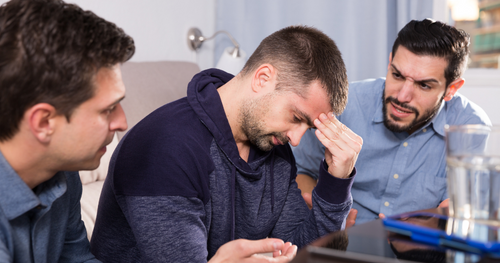Emotions influence a lot of the decisions you make in life. From helping with daily interactions to serving as a survival response, they propel you to act. For instance, fear is an emotion helpful in some situations with imminent danger. In brief, emotions play a key role in expressivity, decision-making, and social communication. You need to nurture emotional self-care to enhance these critical elements influenced by emotions.
It is natural to experience overwhelming emotions, but there are ways to manage them effectively. Although emotions are subconscious, you can adequately regulate them by honing specific skills. The first step of emotional regulation is embracing emotional self-care. To practice emotional self-care is understanding how to navigate, manage, and respond to these emotions appropriately. Read on to learn how to feel good using emotional self-care.
What Is Emotional Self-Care?
There are different forms of self-care practices, and emotional self-care is one of them. It is a type of psychological self-care that incorporates identifying, understanding, and accepting healthy coping mechanisms. It involves processes that cater to emotional well-being, including emotional regulation and coping strategies.
Taking care of your emotional health is essential to your daily life. Developing healthy behaviors and positive approaches when expressing emotions are all part of emotional self-care. If you have difficulty managing your emotions, are easily overwhelmed, or are unable to honor your emotions, you may be struggling with poor emotional self-care. Some examples of emotional self-care activities you can include in your routine are journaling, setting healthy boundaries, and positive affirmations.
How To Practice Emotional Self-Care?
The lack of emotional self-care can be detrimental to other forms of self-care. For instance, poor emotional health can lead to withdrawal and irritability. In this example, your social interactions can decline, and your mental health may also suffer. You can develop healthier coping mechanisms by adopting emotional self-care activities and practices.
Build self-awareness.

Believe it or not, understanding your emotions is not always easy, especially with poor emotional wellness. Part of developing emotional health is understanding the feelings that arise, what they mean to you, and how others perceive them.
Self-awareness is a personal development practice that helps you better regulate your emotions and develop empathy for others. It allows you to be honest with yourself and build an emotional connection. Doing this gives you a deeper understanding of your emotions, and you can see how they influence your behaviors.
How to? Examine how you respond to different situations by identifying your emotional triggers. You can learn more about yourself by knowing what led to those reactions. Knowing that allows you to become more conscious in similar situations and take healthier approaches in the future.
Establish meaningful connections.

The relationships you pursue can affect your emotional self-care. You’re more likely, to be honest about your emotional well-being when you have support. Therefore, having people that acknowledge your feelings and are there for you is essential.
How to? You can speak to or join a community if you don’t have people around, such as family and friends. Being a part of a supportive community and learning to release these emotions with the help of others can help your emotional well-being.
Learn to be vulnerable with yourself.

Some people have difficulty being vulnerable with others but also express this fear with their selves. Vulnerability allows you to explore your emotions. To be vulnerable, it is important to be emotionally available to yourself by not avoiding your emotions. It creates the opposite effect by shutting these emotions away, hoping they won’t return. Neither avoiding situations nor avoiding dealing with the emotions themselves are helpful. Learn to handle your emotions better by recognizing your emotions and acknowledging them.
How to? Occasionally, ask yourself how you’re feeling. Spend some time with your emotions by bearing it all to yourself. Journaling can be a helpful practice in this instance.
Practice gratitude often.

The practice of gratitude helps you navigate difficult emotions. It allows you to validate every emotion you feel. Although negative emotions will still be felt, you’re more likely to approach them differently when filled with gratitude. Your perspective changes positively when you practice gratitude. You’re still allowed to feel the emotions, but you’re more empathetic and compassionate when handling them.
How to? Think about the things you’re grateful for by making notes of them in a planner. Be appreciative of your presence and everything you have going on.
Recognize when you need help.

Emotions can be simple, but they can also be extremely complex. You will face times when it feels overbearing. Instead of shutting away and isolating yourself, ask for help. This is why developing self-awareness is key to fostering healthy emotional regulation. Because when you’re self-aware, you recognize the signs of emotional distress before you’re in a state where you feel isolation is the best thing to do.
How to? It can be difficult to ask for emotional support, especially if that is something you have never done previously. First, understand that asking for help is not a sign or weakness. You are strong enough to understand your limits, and everyone has them.
To ask for support, be direct in your approach. “Can you spend some time with me this weekend? I need someone to be there.” A proper support system will be happy to be there for you. If you don’t have a strong support network, going to therapy is another valuable approach to receiving help.
Address your past emotional wounds.

Healing is crucial in your emotional health self-care. Sometimes, it is something much deeper that needs to be addressed. You may be easily triggered if you have unresolved emotional healing. Painful emotions that have never been acknowledged or dealt with can become an emotional burden long-term. Don’t minimize emotional pain when you’re experiencing it.
How to? Be patient with yourself while trying to heal. It won’t be immediate, but you will process it efficiently if you give it time. The past is unquestionably something you don’t want to experience again. However, using mindfulness can help you develop self-compassion as you heal. You’re more present with your emotions when you practice mindfulness, making you more likely to have an accurate perception. An example of a mindfulness practice you can start with is meditation.
Source within yourself.

Emotional self-care requires external and internal factors. To source within yourself is applying what you already have to your self-care. You need to be enough for yourself, and you do this by affirming your strength, establishing boundaries, and conditionally giving to yourself. The relationship you have with yourself has to be a healthy one to understand your emotions better.
How to? Take accountability for your emotions. When you have moments when you don’t feel the best about yourself, pause and take time for self-reflection. Take control of your emotions by asserting that you are more than what you’re feeling. By doing this, you’re not avoiding but centering yourself on approaching the situation better.
Summary
Emotional self-care is an important part of your overall well-being. You cannot solely focus on the physical and ignore your emotional well-being. Investing time and energy into your emotional wellness promotes a healthier and happier lifestyle.
You will experience different emotions in your lifetime, from positive to negative. Unfortunately, you will deal with negative emotions as part of life experiences. Think about the contrast of life; where there is light, there is darkness. Aside from helping with basic survival, these negative emotions also intensify the feel-good sensations the positive emotions evoke. How would you understand these positive emotions without the existence of the negative? The presence of the two emotions serves important purposes in life. Therefore, working on your emotional self-care helps you regulate the negative and appreciate the positive.





Leave a Reply